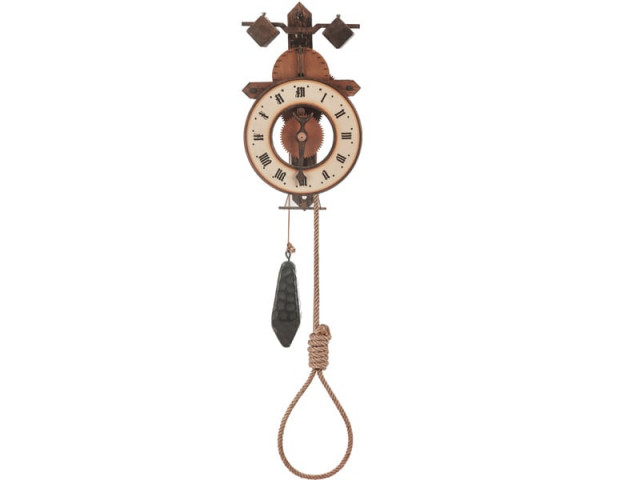Left ‘hanging’: Sindh refuses to give advice on death penalty
Centre seeks legal opinion from all provinces, Sindh insists it is ‘a federal matter’ .

Around 8,000 convicts on
death row are languishing in jails. PHOTO: FILE
Around 8,000 convicts on death row languish in jails as the government enforced a temporary stay against executions in August last year. After a long lull, the federal government has sought “legal” opinion from the provinces about the abolition of capital punishment, The Express Tribune has learnt.
Officials said that while the federal government temporarily stayed the hangings, it sent letters last month to the provinces to suggest a solution. “The Sindh government has also received a letter wherein it has been urged to assist the Centre on the delicate issue by providing legal opinion,” said an official.
The renewal of the stay on executions through a presidential moratorium sparked debate about whether the country - plagued by militancy, criminal and sectarian - should uphold the death penalty and carry out executions.

The stay was granted reportedly because Taliban militants threatened to target the new government led by Pakistan Muslim League-Nawaz if it would send their men to the gallows.
Since 2008, none of the jailers across the country had to shed a red handkerchief, because the then president Asif Ali Zardari had granted a stay on executions in exercise of his power under Article 45 of the 1973 Constitution. The article says: “President shall have the power to grant pardon, reprieve and respite, and to remit, suspend or commute any sentence passed by any court, tribunal or other authority.”
The new government also followed the policy of the Pakistan Peoples Party, but now the Centre, which is constitutionally mandated to take a decision, is reaching out to its peripheries.
However, Sindh has not sent a positive response.
“This is purely a matter concerning the federal government instead of the province,” said Khalid Javed Khan, the former advocate general, who was tasked by the provincial government to prepare a legal opinion. “We’ve simply told the Centre that it’s a federal subject and the province has nothing to do with it,” he told The Express Tribune on Saturday.
So far, it is unclear whether the other provinces have offered any opinion or they have also expressed their inability to give legal advice.
In Karachi, meanwhile, there are strong voices in support of the harsh punishment. Lawyers, who are supposed to defend suspects until proven guilty, were of the view that target killings were rampant because criminals and terrorists were not deterred.
Since 2007, over 40 lawyers have been assassinated in Karachi, according to the Sindh High Court Bar Association (SHCBA), which calls it a failure on the part of the government to improve the deteriorating security situation. “The death penalty is prescribed for the killers of innocent citizens in our Holy Book,” said SHCBA president ZK Jatoi. “No one should be against the injunctions of religion.”
Former Sindh High Court chief justice Mushir Alam had also given similar statements, asking the authorities to honour the courts’ verdicts by implementing them in letter and spirit.
The human rights groups, however, have an entirely different opinion. The Human Rights Commission of Pakistan (HRCP) has long been pressing the government to abolish capital punishment and they could become productive members of the society instead. “This is a very harsh punishment, which must be abolished. And we hope the new government would protect the fundamental rights of every citizen, including the condemned prisoners, like it is done in every civilised society,” said HRCP chairperson Zohra Yousuf.
Similarly, Amnesty International has repeatedly demanded the country’s new government not to resume hangings while the European Union has reportedly warned that it would deny Islamabad’s request for duty-free exports to Europe if inmates were sent to the gallows.
Published in The Express Tribune, January 14th, 2014.



















COMMENTS
Comments are moderated and generally will be posted if they are on-topic and not abusive.
For more information, please see our Comments FAQ